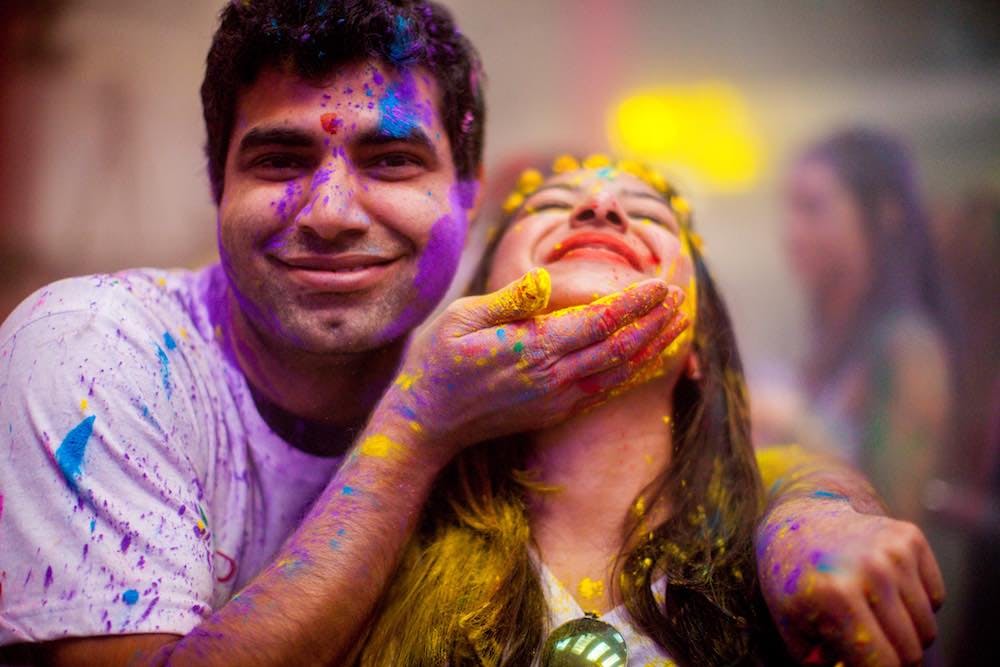
We interview the open-hearted cousins behind Dishoom, the Indian eatery that's been named the best restaurant in the UK (twice)
Shamil and Kavi Thakrar, the duo behind the incredibly successful chain of Indian restaurants Dishoom, are sitting in a booth in their huge Kings Cross outlet. They are, as they call themselves, the chief wallahs behind this highly-respected and much-loved foodie destination. They have won many plaudits, but not just for their food. As they point out to happiful, behind every successful venture is the staff: the men and women who work for them, from front-of-house to waiting staff and, of course, the many chefs who toil away behind the scenes.
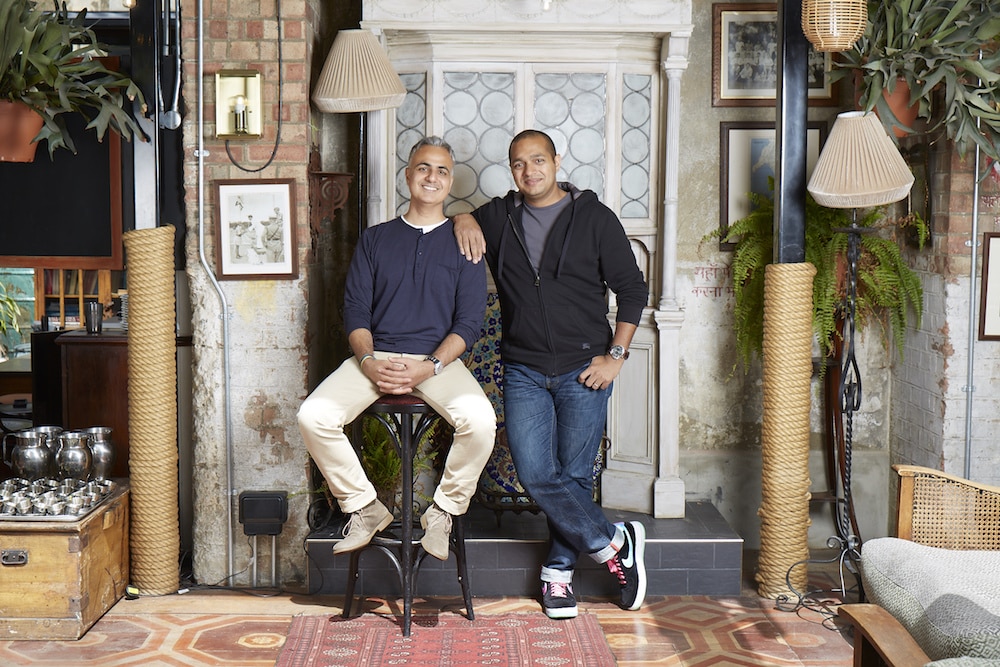
“Our staff and their welfare is terribly important to us,” says 45-year-old Shamil, who used to work in the family’s former rice business, and also studied business at Harvard. This is obviously true. While happiful dines, everyone comes up to greet the cousins, from the staff to the punters. I ask a man behind the bar whether he likes his job. “I love my job,” he says. “It’s such a happy and inspirational place to work. I have so many opportunities and everyone who works here feels the same.” The cousins’ ethos is simple – if you run a happy ship, you’ll have a successful vessel that can survive the ups and downs of a precarious business world.
We absolutely knew we were not rapacious capitalists trying to eke the last penny out of everyone. It's not who we are
To keep everyone happy and contented, they offer yoga and music events, with such notable people as Nitin Sawhney and Claire Missingham. They are not averse to sending their workforce on mindfulness training days or bringing a happiness coach in to the kitchen. As Dishoom – a wider version of it – they host Holi parties where the staff throw coloured paint powder over each other. They bring in musicians and storytellers and everyone drinks chai and, later on, their speciality Indian-blended cocktails. They also celebrate Eid and Diwali, asking the happy partakers to tie knots of protection around one another.
“Last Raksha Bandhan [a traditional celebration of brotherhood] we asked people of different faiths, nationalities and cultures to tie a piece of thread around each other as a gesture of solidarity,” says Shamil. For every thread, the Thakrars donated £1 to Seeds of Peace, a charity that helps teenagers from conflict regions. They found that 7,485 knots were tied.
This year, they hope for even more.
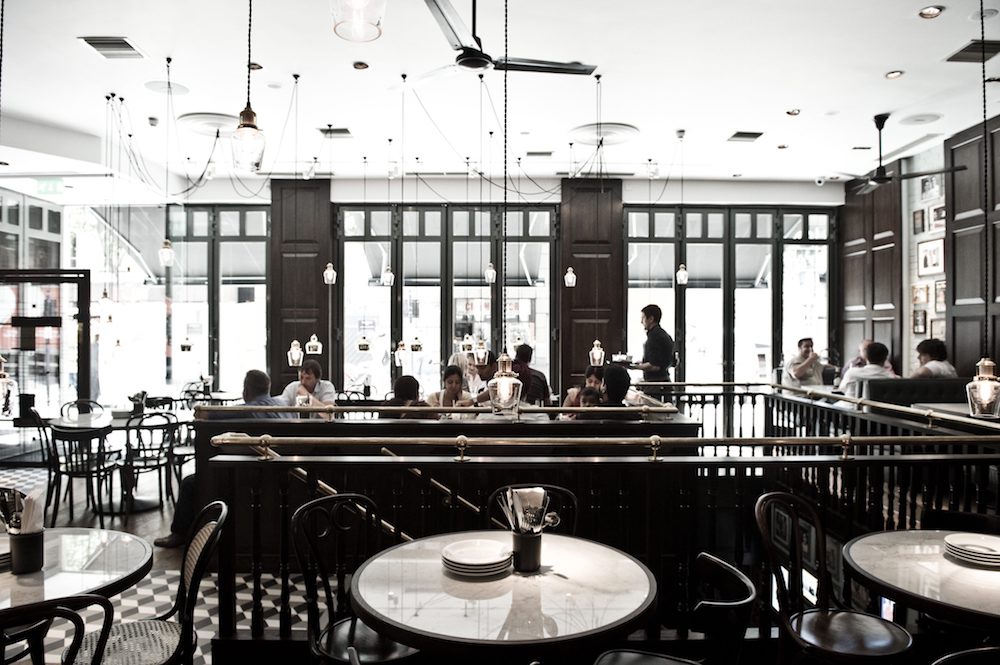
Anything goes at Dishoom as long as it makes their workforce happy and their customers delighted. They have an almost cult-like status on social media with a tremendously devoted following. “We are very committed to the people who work for us and the people who come and eat at Dishoom,” says Shamil. “It’s a family place and we are determined to make it a warm environment.”
Their attention to detail is mind-blowing. The pair go to Mumbai (or Bombay as they still call it) to research all the right furniture and the correct “look” for each of their five restaurants – four in London, one in Edinburgh.
Every branch of Dishoom tells a story – the Kings Cross outlet is about a young Indian man earning his fortune selling chai at a railway station. In order to get the feel (and the food) right, the staff gets a trip every other year to India. “We really want the people who work for us to understand the Irani culture,” says Shamil.
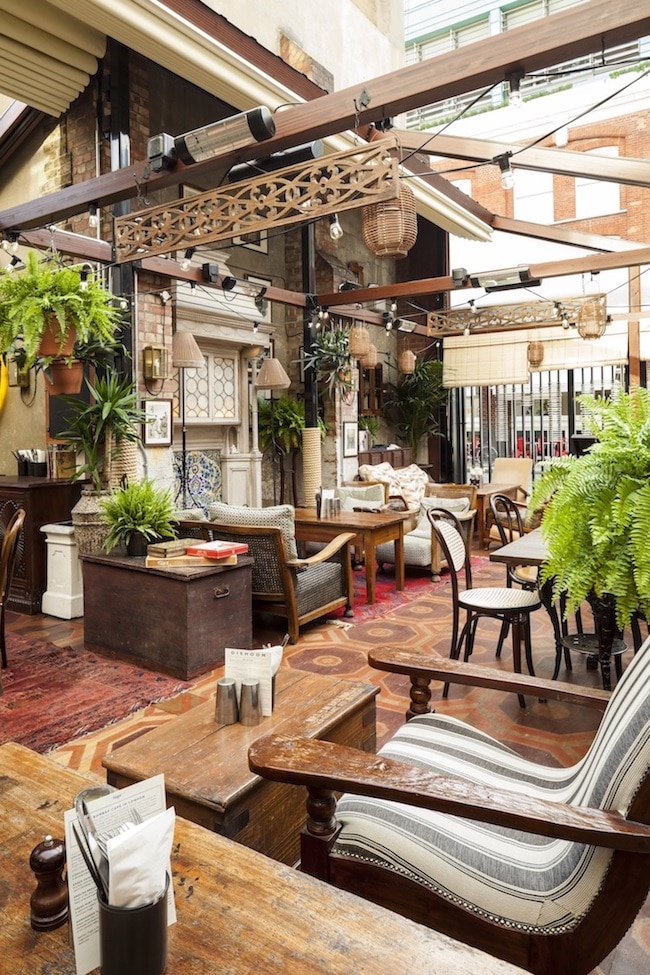
The concept of Dishoom – which means “Kapow!” in Hindi – is based on the Irani cafes in India’s largest city. “We fell in love with the idea of the Irani cafes of [early 1900s] Bombay. They were formed by the Parsi community who were very Western in their thinking. These spaces ended up being community hubs in Bombay – and for us that was amazing. There was a story there about acceptance. Anyone could come and eat in the Irani cafes from any caste. They were very popular.”
Before launching the business in 2010 with Amar and Adarsh Radia, a group trip to Mumbai cemented the idea for how Dishoom would stand out in the crowded UK restaurant marketplace. The driving force was their shared experience of home-made Indian food. The restaurants have proved so popular that, in 2015, they came top in the Yelp! poll of the most popular restaurants in the UK, beating Heston Blumenthal’s Michelin-starred Dinner. They won it again in 2016.
“We were so proud,” says Kavi. “It really helped to know that tens of thousands of people love our food and enjoy dining at the restaurants.”
“When we first started out, we had no idea if it would be successful,” adds Shamil. Yet the brothers were both convinced that Dishoom would work as a dining concept, as did their commitment to ethical working practices.
It's incredibly important for us to make sure that every single employee is completely looked after
“We absolutely knew we were not rapacious capitalists trying to eke the last penny out of everyone,” says Shamil. “It’s not who we are.” Recently, The Sunday Times named them as one of the top 100 employers to work for in the UK, in part due to the strong charitable streak running through everything they do. Their net worth has been estimated at more than £10m each, but they plough their earnings back in to expanding their restaurants, paying their staff properly, giving them good holiday allowances, yoga on tap, generous sick leave and pay, and – most highly-valued of all – a commitment to training and encouraging their staff to expand their knowledge of the industry.
“No one stays stuck,” says Shamil. “We like bright sparks who want to do well.”
He says both his father and grandfather were enormous inspirations. “Both men were great entrepreneurs in their own right and established great businesses. My grandfather was, and my father is, incredibly devoted to our family.” Family photographs adorn all their restaurants, something which makes the Thakrar brothers proud. “Our restaurants and working ethos is all about family and giving back,” says Shamil, who spent his formative years working for a homeless charity helping street children in Calcutta. “You see everything there, how children struggle to survive, but then can flourish given the right attention and food.”
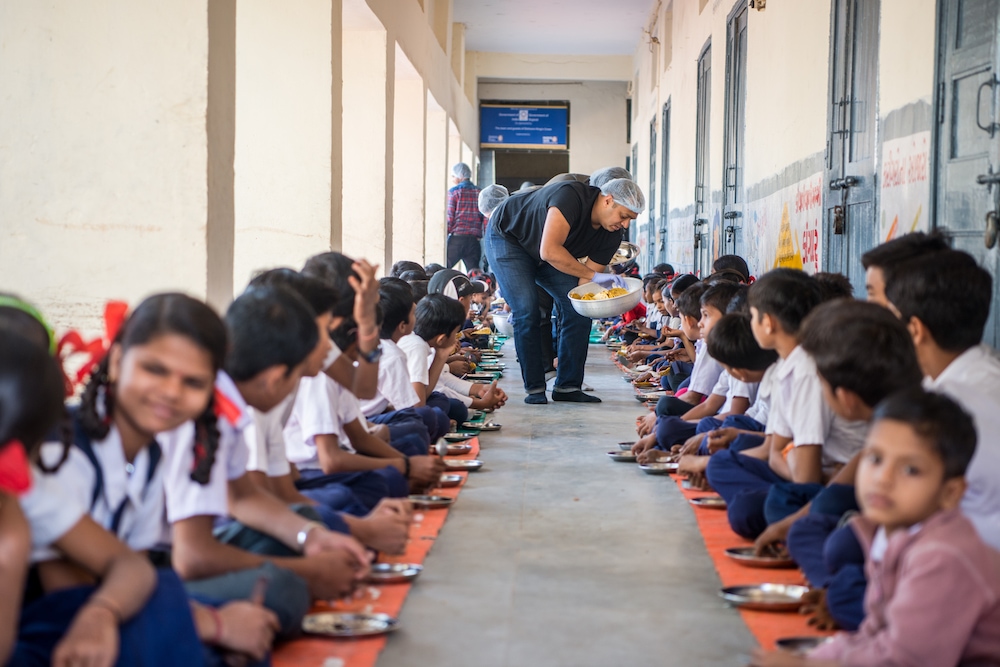
This is partially why they started the initiative “A Meal for a Meal”. “It started during Ramadan two years ago,” says Kavi. “For every meal we serve, we donate a meal to a child who would otherwise go hungry.” Their theory is that when hunger becomes a barrier to education, it’s also a barrier to social mobility. “A child that is not fed can become a teenager who did not learn,” says 38-year-old Kavi. “We care deeply about breaking down these barriers.” By the end of 2016, they had donated 1.7 million meals. That total will rise this year.
“The one thing that runs through my father and grandfather is that they would both make time for everyone, and would help anyone out whenever they could,” says Shamil. “They have very directly influenced what we do at Dishoom – it’s incredibly important for us to make sure that every single guest and every single employee is completely looked after. We’re humble enough to know that we don’t always get it right, but I firmly believe you have to enshrine this principle into everything you do.”
The cousins think of Dishoom as their own world where differences are celebrated rather than judged
Shamil says the important thing about Dishoom is that it breaks down barriers. “The Irani cafes were the first places where people of any culture, class or religion could break bread together. And shared places and experience means less violence and less hatred. During partition, Bombay was spared the bloodshed of Delhi and Calcutta, thanks in part to shared spaces like the Irani cafes. Today, more than ever, we believe that breaking down barriers is hugely important work. Whether it’s getting non-Muslims to celebrate Eid, and non-Hindus to celebrate Diwali, tying Knots of Protection on each other, or feeding millions of children. Food is a way of breaking down barriers, and this is at the heart of what we do.”
The cousins think of Dishoom as their own world where differences are celebrated rather than judged, a place full to the brim with Bombay food and culture. The food is fresher and tastier, the drinks more thirst-quenching, and the humour more eccentric. Their motto is: you’re always amongst friends.
“Our view is that it’s part of human nature to care about making people happy,” says Shamil. “We all care about this deeply. We call this ‘seva’ which means having a big, warm, open heart. Seva also means wanting to be fantastic – first-class – at everything you do.”
Lucy Cavendish is a writer and counsellor who works with individuals, couples and young people. Visit her page on Counselling Directory for more details.

